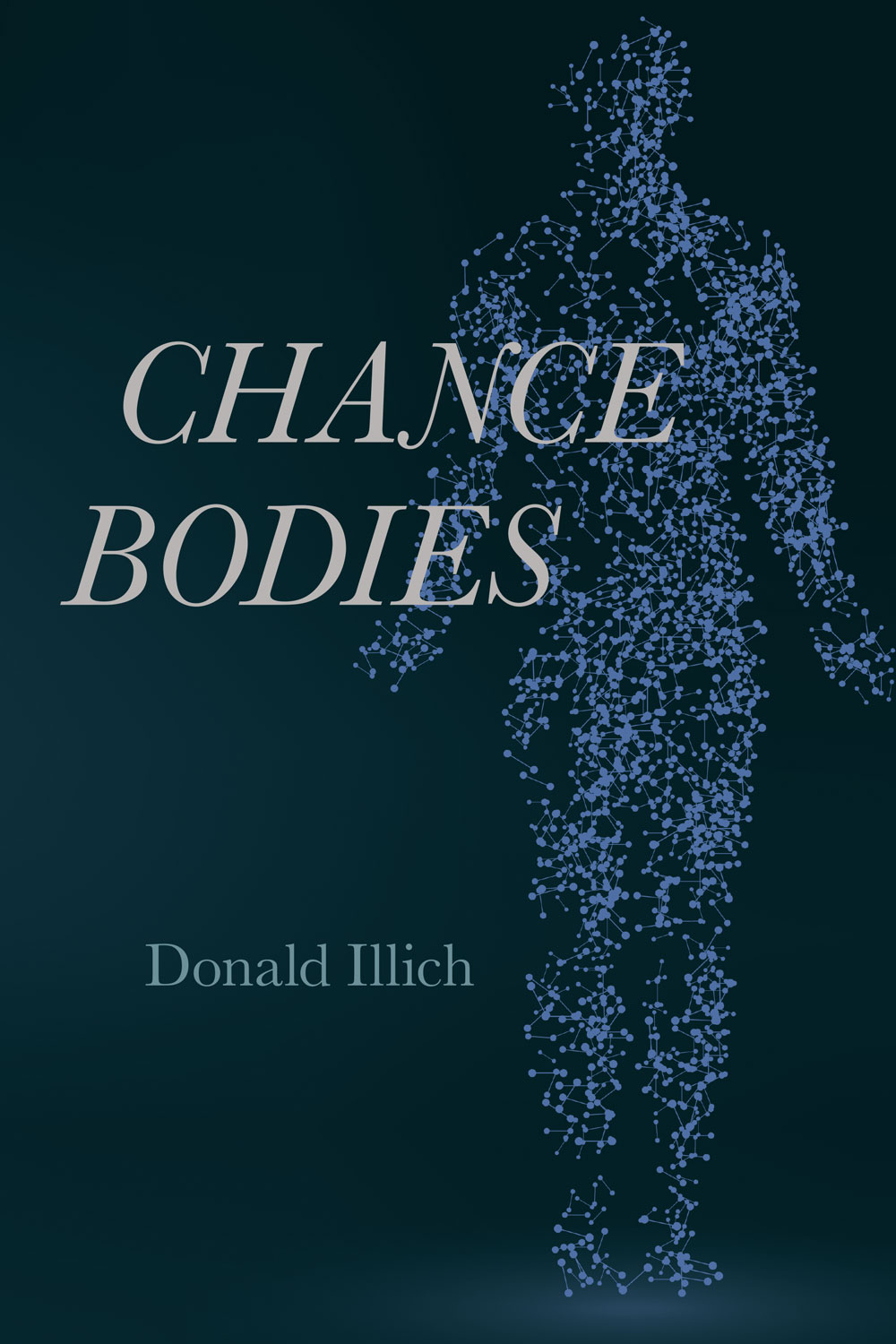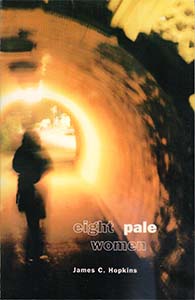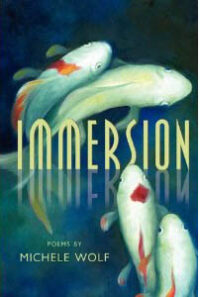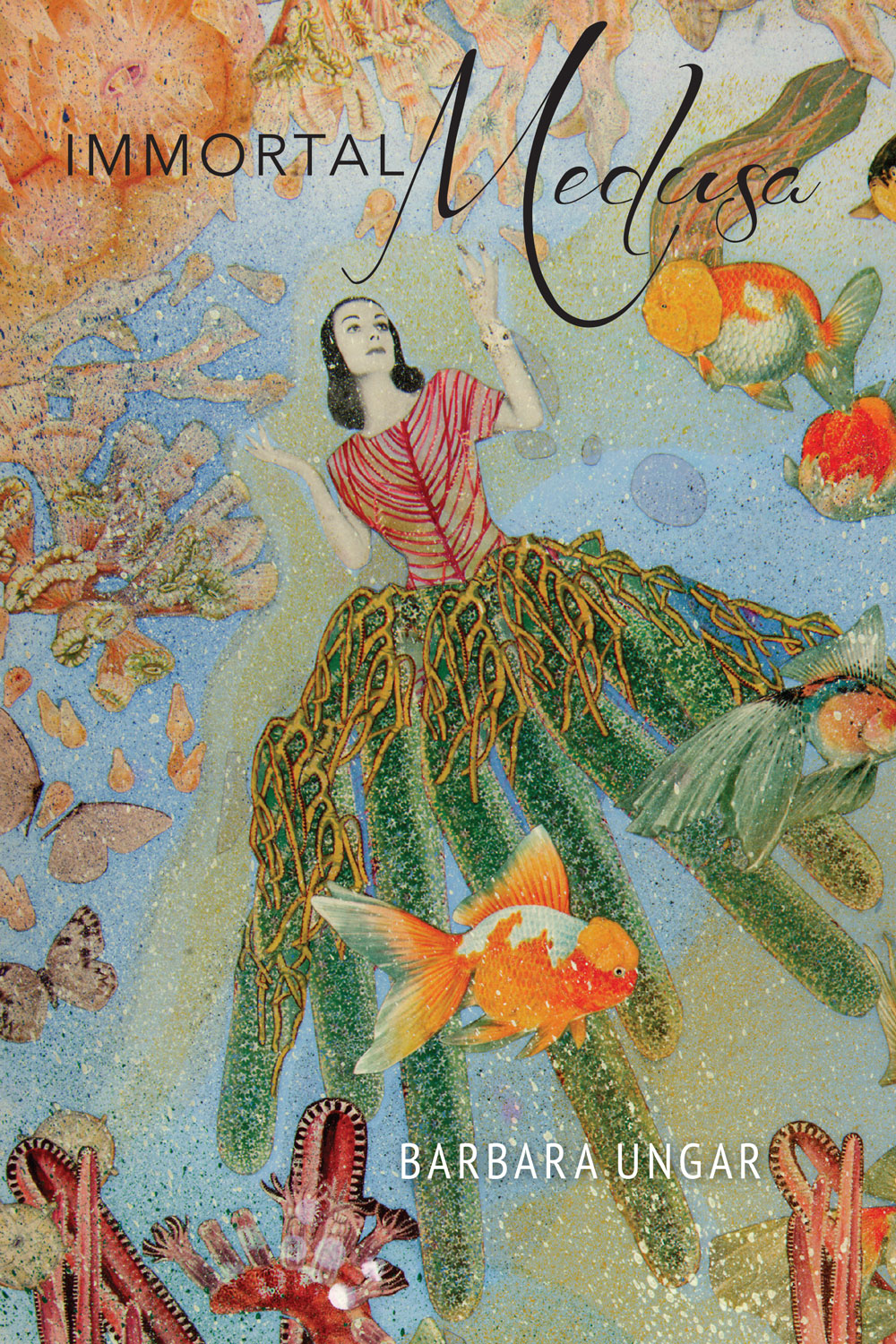About Don Illich
 Donald Illich’s work has appeared in literary journals such as The Iowa Review, LIT, Nimrod, Passages North, Rattle, and Sixth Finch. His previous publications include two chapbooks, Rocket Children and The Art of Dissolving. He is a writer-editor in Rockville, Maryland.
Donald Illich’s work has appeared in literary journals such as The Iowa Review, LIT, Nimrod, Passages North, Rattle, and Sixth Finch. His previous publications include two chapbooks, Rocket Children and The Art of Dissolving. He is a writer-editor in Rockville, Maryland.
Praise for Chance Bodies
The unsettling poems in Don Illich’s Chance Bodies deftly capture the odd unease of what we like to call ordinary life. The neighborhoods in these poems are archetypal places where violent acts and their human perpetrators are frighteningly banal. Illich’s vision is a close fit for a time in which evil takes perilously mundane forms, yet the book is not a polemic, but a work of wide-awake dreaming. Taut economies and memorable images are among the pleasures of this original, valuable first collection.
—Joan Larkin, author of Cold River and My Body: New and Selected Poems
It’s time for more readers to know the work of Donald Illich. Chance Bodies occupies the liminality between anxiety and escape, responsibility and rebellion. Park rangers conspire with bears. Babies learn to be rockets. A frustrated gardener decides to grow deer instead. The subversive humor might be what pulls us in, but the craft of imagery and deft lineation is what holds us. Illich frames his work with smart, elegant references to Ovid, to Dante, to Kafka. In the manner of Wallace Stevens, one speaker reports, “How I get down one step / after another, swallowing / the sky’s orange, filling up / with blue radiance in my bowl.” Another laments, “Yellow / folders as my bones. A desk as my skull.” So many moments tap into the ineffable ache of adulthood. This collection is hot-damn fantastic, and I’m delighted to see it in the world.
—Sandra Beasley, author of I Was the Jukebox and Count the Waves
The beauty of Illich’s poems is that every one is completely different, yet somehow each startles and dramatizes us in the same way. What Illich does is focus on the sense we all have of being not quite centered, of being a step ahead of or behind ourselves. So a poem called “Secret Club” begins, “Have I joined? Its members don’t tell me.” In “Neighborhood,” the speaker is happy when his new friends initiate him by tossing him into a pool, but we’re never quite sure if that’s a friendly gesture or not. (And the title “Temporarily Human” says it all, doesn’t it?) These poems are snapshots that are somehow both brightly colored and shadowy at the same time. My favorite is “Balloon Animals,” where the poet is inept at making balloons into dachshunds, though in the end his creations are more beautiful than anything earthly as they float through the night sky like space ships or the northern lights.
—David Kirby, author of The Temple Gate Called Beautiful and Talking about Movies with Jesus








Reviews
There are no reviews yet.